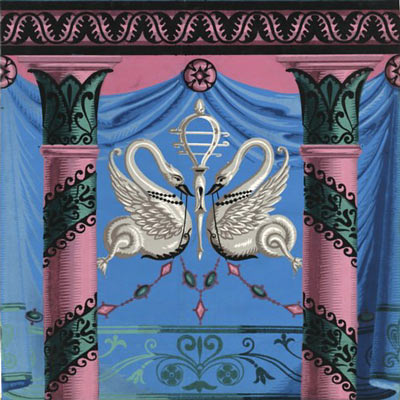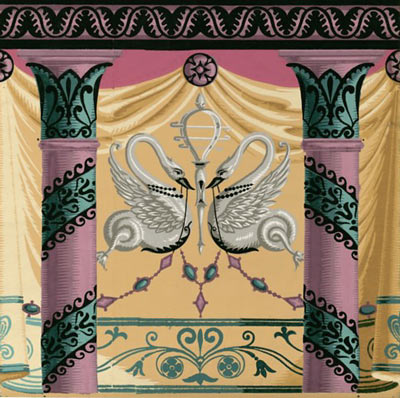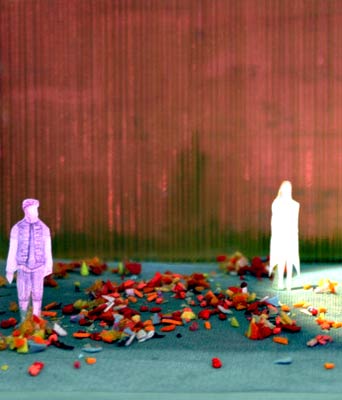
Swans and a sistrum,
A beautiful wallpaper by Jacquemart (1803)
Since Antiquity the swan is associated with music. It is connected to Apollo, the Great God of Music, and an attribute of Erato, the Muse presiding over Love Poetry, Hymns and Wedding songs.
Swans play en important part in the birth of Apollo. The Greek mythology tells that when Apollo was born, sacred swans came and fled over the island of Delos seven times. Then, they took the baby to Hyperborea, the region ruled by Boreas, the God of the North Wind, where the baby stayed one year. Hellenes used to believe that Apollo was spending every Winter in Hyperborea.(***)

Another myth, still related to Apollo, connects the swan to music and singing : the myth of Kyknos, King of Liguria and friend to Phaeton. While he lamented his friend's tragic death, Apollo gave Kyknos a melodious voice and metamorphosed him into a swan.
The link between swan and music has certainly much to do with the North swan called cygnus musicus or ferus, because of his whistling ressembling the sound of a violin. This peculiar sound probably gave origin to the ancient belief that the mute swan (cygnus olor or mansuetus) is completely mute during its lifetime but sings beautifully just before he dies.
Sistrum is a percussion instrument merely associated with ancient Egypt. We find it used during all the ancien regime to symbolise music. At the same time simple, easy to recognise and meaningful, the sistrum had obvious decorative qualities, which may explain it became one of the recurring symbols in the neo-classic decorative arts.
----
(***)Rameau's last opera, Les Boréades (1763-64), was based on the myth connecting Apollo to Boreas.
Plot : the tradition, for the queens of Bactria, is to marry descendants of Boreas, but Alphise is in love with Abaris, a man of unknown descent, brought up by Adamas, the high priest of Apollo... The whole opera shows the struggle between the 'Boréades', descendants of Boreas, Calisis and Borileas, the two suitors competing to be chosen by Alphise and to impose their right and the tradition upon her, and the resistance of Alphise and Abaris struggling for their love...
It was, long before Mozart's Enchanted Flute, a masonic opera about the fight between light and darkness, close, in the themes and in its approach, to Rameau's previous opera, Zoroastre (1756).
Labels: Decorative arts, Iconography, Musical instruments, Rameau

 17th & 18th-Century history, arts & music
17th & 18th-Century history, arts & music




